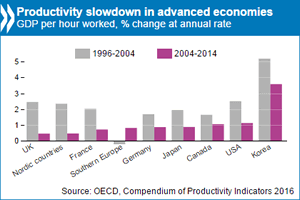I have a confession to make: I love being busy. Evidence includes a long to-do list; an even longer list of ideas; a (very) well-walked dog and active weekends running ‘errands’. I’m already stockpiling books for my next vacation! Like most people, I like feeling engaged, busy, occupied. One task done, let’s start the next one quick!
Learn more about managing your time and energy in our free project handbook
Over time, I came to associate this constant hive of activity with professionalism, effective time management, and accomplishment. I’m not alone in this view; for many, burning the candle at both ends is the hallmark of success. A quick online search reveals a growing obsession with tips and hacks to boost our productivity. And yes, I’ve tried many of these ideas.
Two ideas have recently made me reconsider this stance. Firstly, the idea that leisure time was once a marker of success, not constant busyness. Secondly, being busy leaves little room for downtime, which is essential to creativity. We need time to think and reflect.
This got me thinking about how I was spending my spare time and the effect on both my personal and professional life. Again, I wasn’t alone. Rest, sleep, leisure time, doing less to get more done – these topics are cropping up everywhere online as we count the cost of stress and burnout.
In this article, I will look at current productivity challenges, the habits of famously productive individuals, and practical improvements to your daily routine.
Productivity Challenges
Productivity is formally defined as ‘ the amount of output per worker’. The productivity of a factory worker making footballs, for example, could be measured by how many footballs they make in one hour.
Although productivity has become increasingly equated with longer working hours in recent times, research indicates that productivity levels are falling in many economies. We know longer working hours reduce outputs and lead to poor decisions, mistakes, less creativity, and various health problems.
Many Japanese workers work more than 60 hours of overtime each week yet the contributing value (productivity) of each individual is the lowest among the industrialized countries. By contrast, countries with shorter working weeks such as Luxemburg, Norway, and France are ranked as highly productive by the OECD.

This makes sense; our brain can only concentrate for 13 hours after we wake up with creativity lasting for about 6 hours a day. Research from the University of California, Irvine, shows productivity rises in the late morning around 11 a.m. and peaks between 2 and 3 p.m. The next time you consider staying late at the office to get some extra work – don’t. It won’t pay off in the long run.
Habits of Famously Productive People
There are many reasons why modern employees feel pressured to work longer hours: an increasingly connected global economy; the rise of contract and short-term roles; the emergence of an ‘always-on’ work culture due to technological advances. Some even argue that a focus on time-management skills and techniques is to blame. Individuals are required to be hyper-productive and efficient; any extra time, even time off, is quickly filled with more tasks and obligations.
A review of the working habits of famously productive people reveals an interesting trend: they only spent a few hours each day working with significantly more time devoted to leisure time and family. Whilst we tend to associate good ideas with hours of work, history offers a different lesson.
Let’s take a look at the working habits of Charles Darwin, author of 19 books including The Origin of Species.

Upon closer inspection, Darwin only worked three 90 minute blocks each day. He is not alone; Anthony Trollope, Charles Dickens, Ernest Hemmingway, and others worked for short bursts with more time devoted to rest. Indeed, their success was dependent on leisure time.
Why is leisure so important to productivity? Leisure and time away from work give us time to reflect and think about our experiences, to make connections between events, and tap into our creativity. Indeed, the Greek word for “leisure,” σχoλη, produced the Latin scola, which became the English word, school. Learning and reflection define leisure, not laziness or idleness (as I sometimes think!).
At this stage, I imagine you are thinking, ‘Right – these guys had time to rest! They lived in a different time with less financial pressure and no clients or teams to manage. Doing less is not an option for me!’ Let’s look at more recent examples for a clearer picture.
10,000 Hours to Success?
I’m sure you’re familiar with the idea that 10,000 hours of deliberate practice leads to mastery. It’s an attractive idea; log the hours and reap the rewards. It worked for the Beatles, who perfected their skills by playing more than 300 times a year for four straight years in the same German concert hall. Jerry Seinfeld’s devotion to repetition led to his own productivity method.
However, a study of German violin students in 1980 reveals something else.
The students were highly motivated, practiced deliberately and with purpose, and took frequent breaks. Each practice session lasted around 90 minutes with short breaks, exercise, and an afternoon nap. They also slept for longer each night than their counterparts. Like Darwin, these students were engaged in their work for about four hours per day.
Rest, not constant practice, allowed these students to hone their creative skills. The equation for success is closer to ‘10,000 hours of deliberate practice, 12,500 hours of deliberate rest, and 30,000 hours of sleep’.
Deliberate Rest
The idea of deliberate rest is becoming quite popular and is neatly explained in this video. The essence: give yourself a chance to rest and think.
Making It Work For You
I hope you are now convinced that doing less and resting more can lead to increased productivity. So, how do you get started with this new approach? Here are a few ideas:
- Sleep: Sleep deprivation reduces productivity and leads to long-term health problems. There are many easy ways to invest in your sleep routine; avoid using mobile devices for about 30 minutes before going to bed; read a book, and reduce your caffeine intake throughout the day.
- Disconnect from Work: Use your evenings and weekends to switch off from work as much as possible. Ideally, don’t check your emails or do any extra work. If you really need to, try to set aside a specific block of time to do so and stop at the allocated time. Separating work and home environments will help you enjoy your leisure time.
- Recharge your Physical and Mental Energy: Unlike time, we can easily top up our physical and emotional energy levels. Tips include reviewing your diet and exercise habits, practicing gratitude, and giving time to others.
- Take Vacations: Many executives, managers, and other employees are ‘work martyrs’. They believe that they’re so indispensable to the company they cannot step away for a week or even a couple of days. Of course, we know that this mindset reduces productivity. If you are struggling to take time away from work, why not build and empower your team to keep the project running smoothly in your absence?
- Schedule Gaps in Your Calendar: Like Dickens, Darwin, and many others, Warren Buffet has a famously sparse calendar, which allows him to think deeply throughout his day. Schedule some gaps or slack in your calendar to think and respond to unexpected challenges.

